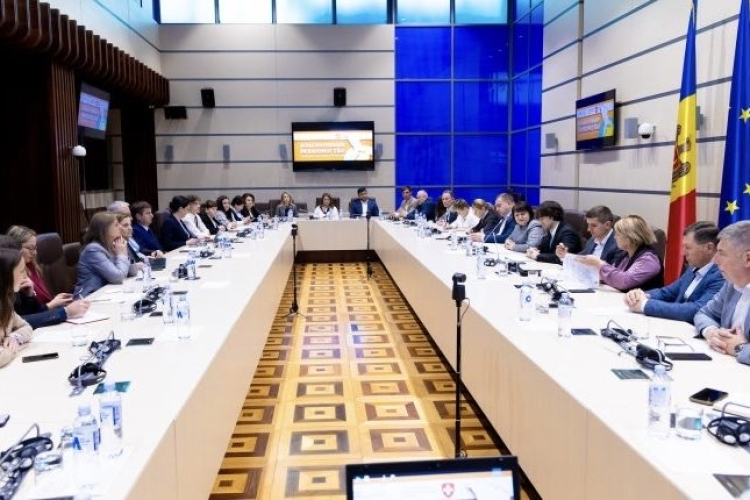The civic involvement of citizens at the local level in Moldova is reduced, and participation is currently limited exclusively to voting as the citizen comes, exercises the right to vote and considers their role completed, without feeling that they have the possibility or responsibility to bring about changes at the local level. This was one of the conclusions formulated by the participants in a roundtable meeting held in Parliament, which centered on the involvement of citizens in the decision-making process of the local public administration of the first and second levels. The participants suggested that it is important to ensure access to public information because, without it, no other right can be exercised. The local authorities should receive greater support from the central authorities, in particular to secure the resources needed to guarantee access to information. Developing mayors' websites, which are still a rarity at the level of villages and communes, is an important aspect, IPN reports.
"Even if there is this perception that the citizens at the local level are not as interested in local politics as they are interested in central politics, proper information can educate activism. What I very much wish is that the authorities in this interconnection with the citizens do not disregard things and assume this role of education. The citizen in this cooperation must become better informed and better understand things, be better politically educated in the neutral sense of this word," said anticorruption expert at Transparency International-Moldova Mariana Kalughin.
ASSIST Analytics expert Mark Mazureanu said that Moldova is coming out of a centralized, coordinated, planned Soviet system, in which the state is big and the man is small. Then, suddenly, the democratic process appeared and the people were invited to participate in the vote, without really understanding that their vote really matters. In essence, the people do not understand the mechanism of the process, be it electoral or decision-making. After a long period in which the system was unrepresentative, the citizens did not trust it, and now, even if the system begins to become transparent, representative and functional, the people fail to perceive this. The state should change its attitude and, if it wants a responsible and involved citizen, take concrete actions to encourage citizens’ active involvement.
Present at the discussions, chairman of the Parliament’s public administration and regional development commission Larisa Voloh stressed the importance of consulting the citizens in the decision-making process both at the local local and at the central level. The MP said that there are good practices when mayors, local elected officials are close to the citizens and consult them, look for solutions, including by involving the diaspora and natives from outside the localities. "I know the existing problems, but we need to learn from everyday lessons and see how we involve citizens and think about the extent to which we can carry out activities in the community. We have to take into account a few things when it comes to the involvement of citizens, namely their trust in those who govern and the way state institutions interact," explained Larisa Voloh.
During the event, a group of experts presented the results of a study conducted by questioning the population of Anenii Noi, Căușeni, Criuleni, Sîngerei, Șoldănești, Ștefan Vodă, Rezina, and Taraclia districts about the involvement of citizens in the decision-making process at the local level. The experts recommended taking action to stimulate citizens' involvement in the decision-making process, facilitating access to documents and contributing to enhanced communication with the people. The experts found that there are good practices in some districts that use such platforms, including the use of social media, to hold public consultations regarding the planning and distribution of the local budget when implementing local development projects. In this regard, it was mentioned that Strășeni is the most transparent district, while Nisporeni is the least transparent district.
The public discussions concluded the "Good Governance in Your District" program implemented by the Public Association "ASSIST Analytics" and funded by the Swiss Cooperation Office in the Republic of Moldova.

